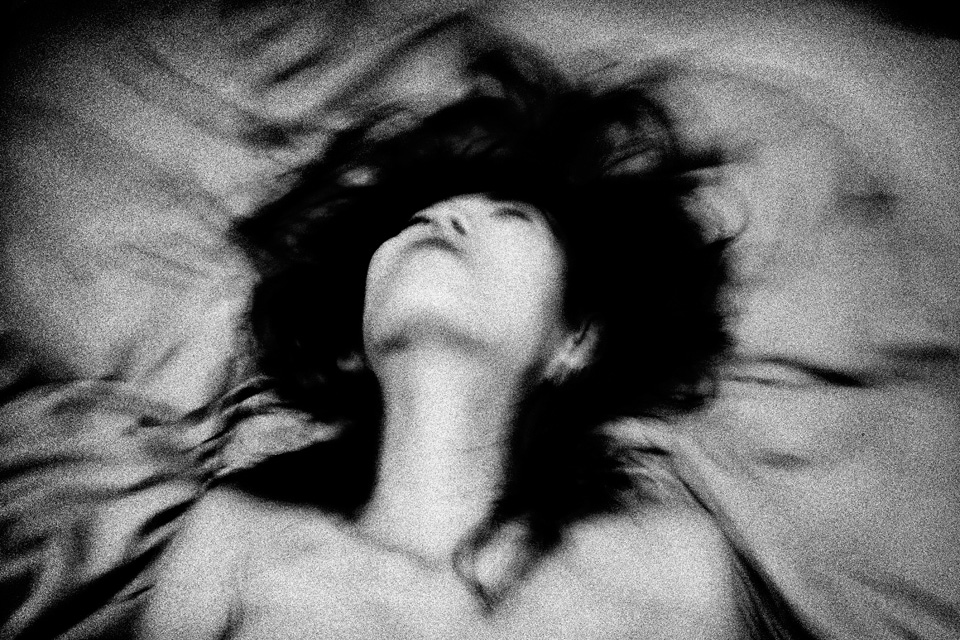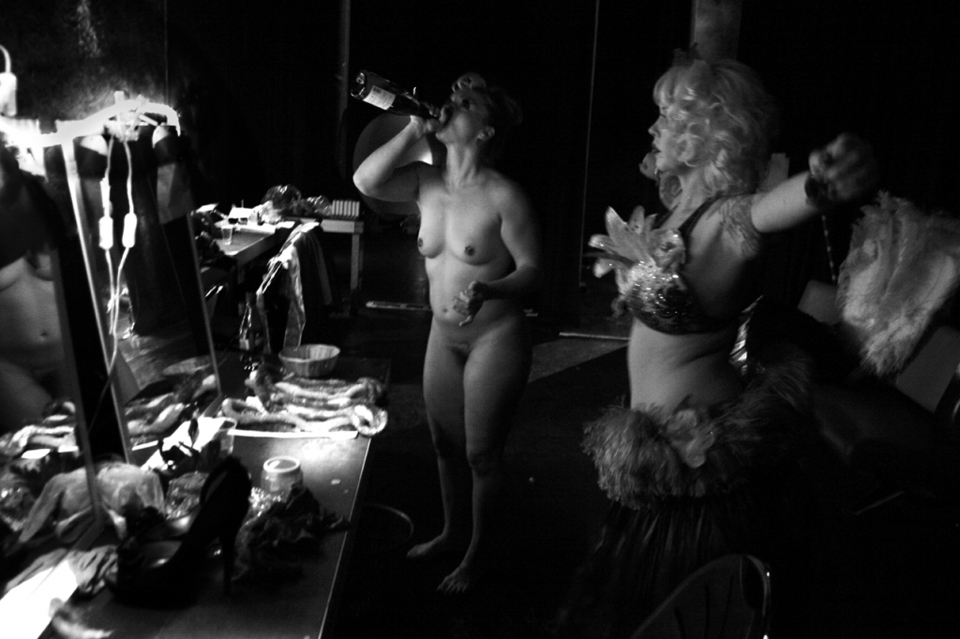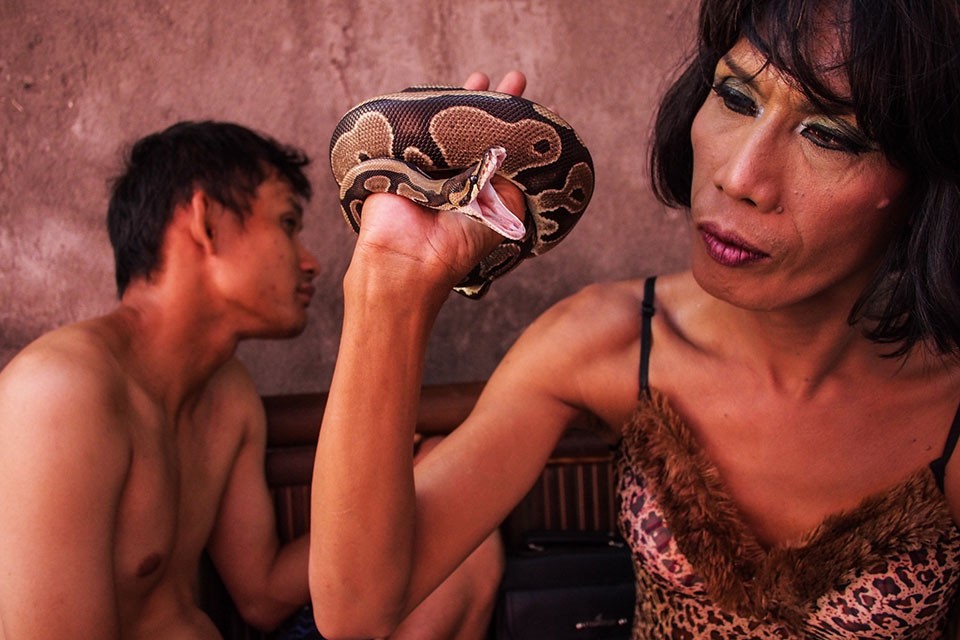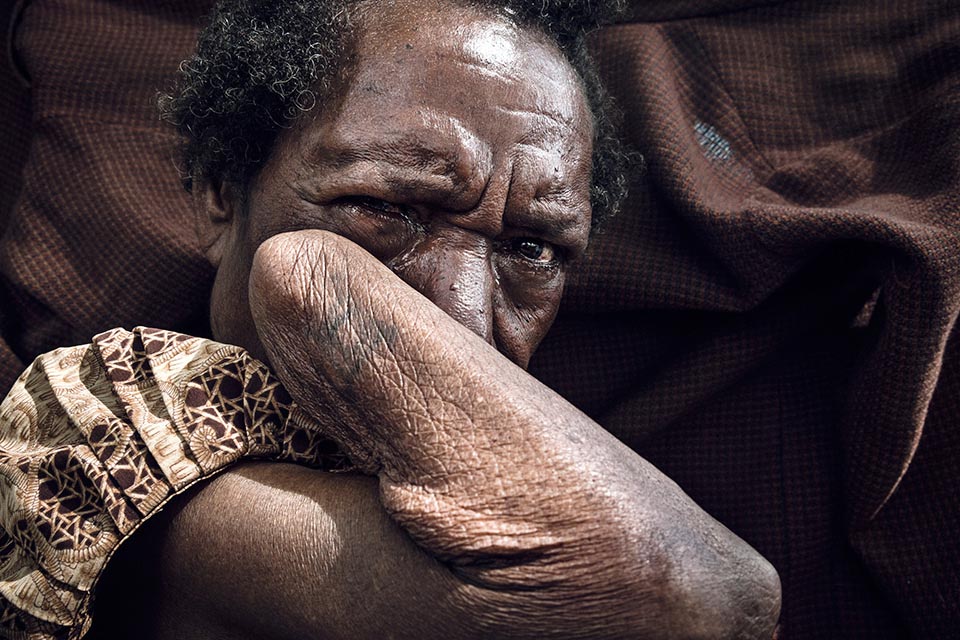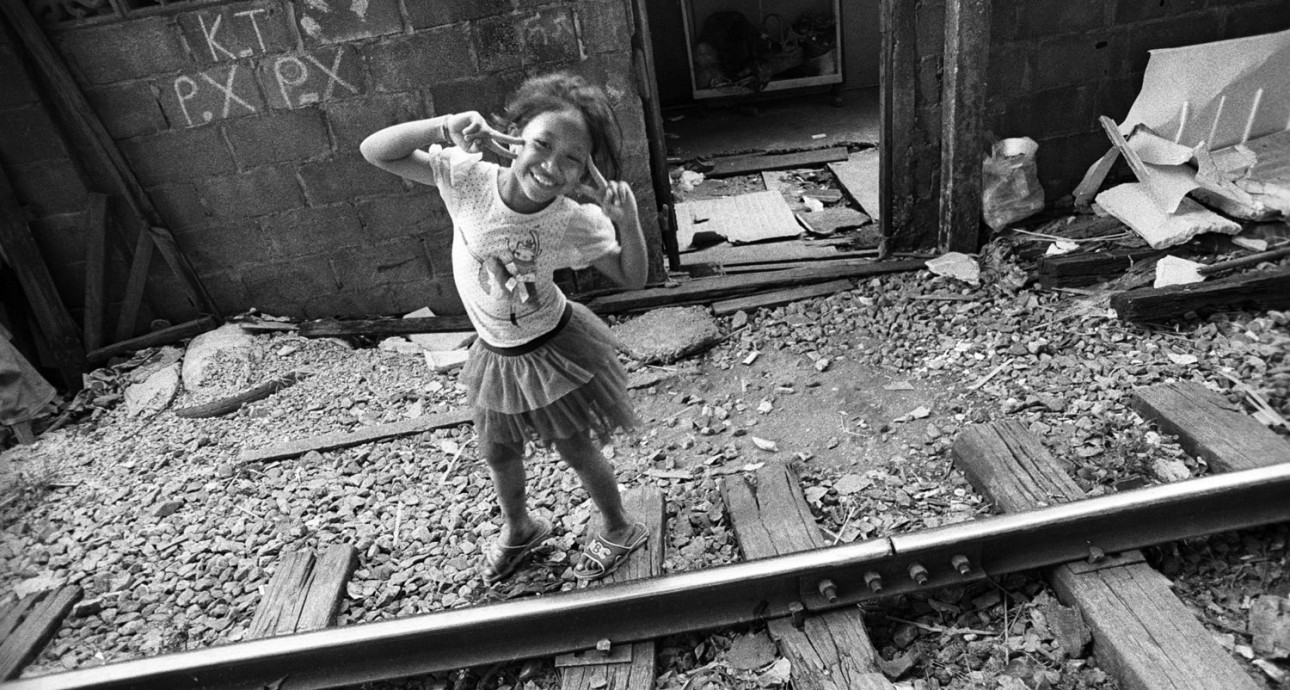
70Rai: Bangkok Slums in Yoonki Kim’s Project
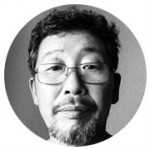
Born in Seoul. Studied Psychology at Korea University. Has been living in Bangkok since 1994, owns a small transportation company. Amateur photographer since 1999. In 2004, wrote a book about amateur photography in Korea.
I wanted to go to some dangerous place, take shocking pictures, and get famous fast. Then, I read a book, Welcome to Bangkok Slaughterhouse, written by a Catholic priest, Fr. Joe Maier, who lived and worked at 70 Rai for 40 years. It was fascinating, but also really scary. 70 Rai is close to my place, so it was an easy choice.
70 Rai (‘rai’ is a unit of area in Thailand, 70 rai equals 11.2 ha — Ed.) is part of the biggest slum area in Thailand. I think it functions very nicely as a refugee camp and a daycare center for poor people. There are Cambodian, Laotian, and Rohingya immigrants all the time. It is a home for people who have lost everything.
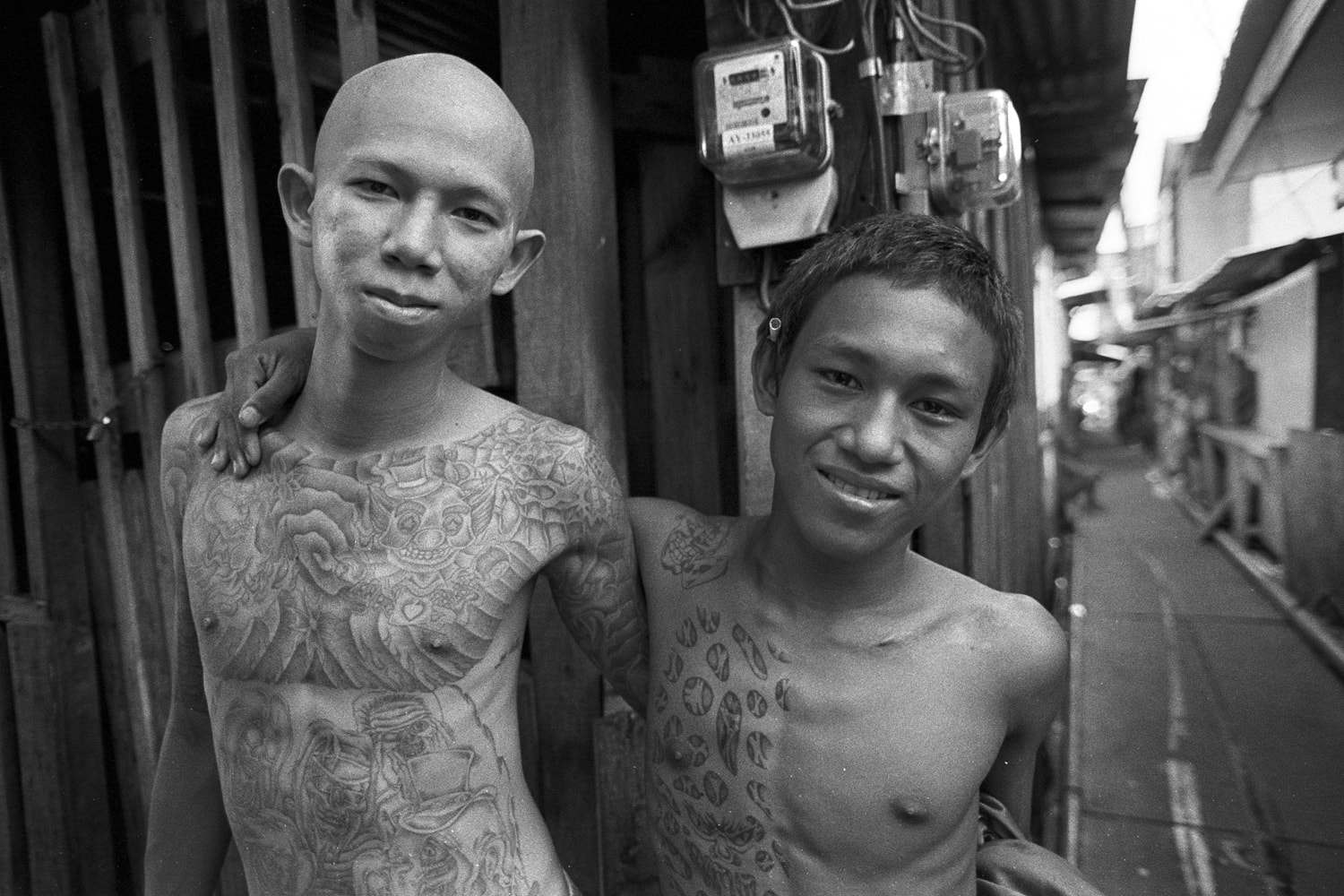
I started this project on January 24, 2006. Of course, the slum has changed in these 10 years — part of it was made a container terminal, many people died and many were born, and lots of new immigrants came in. But the bigger change was myself. The people I have met taught me to see and to respond differently.
My first exhibition was in August 2006. It was also about this time when I started to change my view of the 70 Rai community. To sell your work, you need to go along with the stereotype.
Viewers expect poor people to be lazy, uneducated, lack motivation, have no happiness or joy. The reality is very different.
I chose not to be an outsider anymore, and show the reality. This decision was very hard for me as a photographer, as it got more difficult to persuade the viewer — but I got to see many things that you don’t see from the outside.
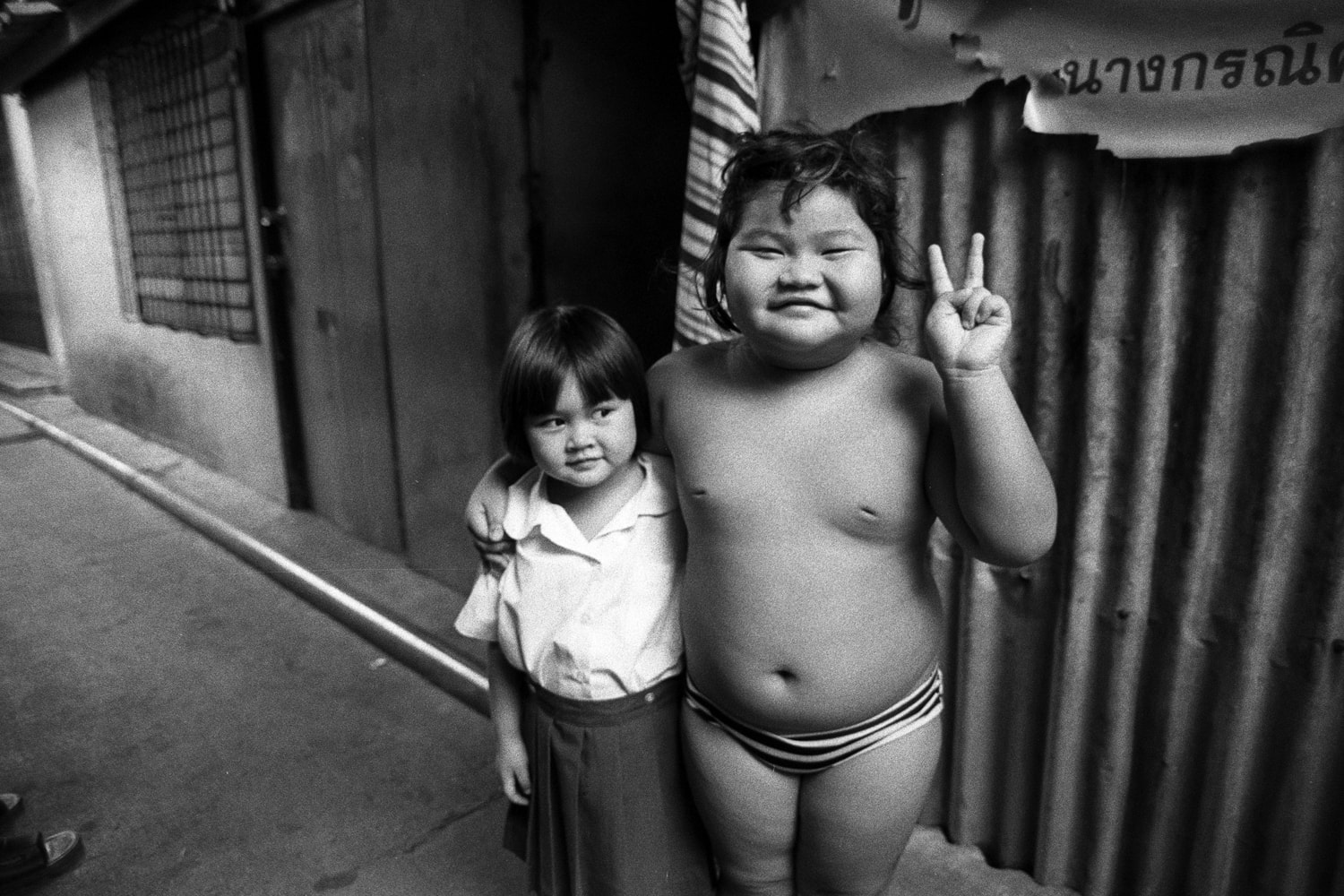
My Thai is not great, but good enough to communicate with the people. I go to 70 Rai every Wednesday. I stay for two or three hours, use two or three rolls of film that I later develop at home, scan, and print for my next visit. The slum residents are my clients, and when I see them looking at the pictures and smiling, I feel accomplished as a photographer. I haven’t had an exhibition since 2009. Taking pictures, spending time with the people, delivering the prints — this is already more than enough.
I know most of the people living in the area, I play with the kids and talk to the old ladies. People think that the poor need money or things, but I think what they need is respect. The community is one big family, full of love and joy. And each member of the community has their own story and energy to fight on. They have no fear, since they have nothing to lose. I don’t want to scare people and show them poverty.
I want to show the portrait of humans with dignity and pride even in hardship. I want to show that they are respectable people, even more so than some of the rich.
In 70 Rai there is a thin line between heroes and antiheroes. A nice person can one day be arrested and go to jail. I saw many kids fighting for a better future, and the next day they were dead.
Many people see my project just like other slum photo projects. They think it is dangerous, and they praise my courage for going there. They pity people I love and look down on them. One time, a Korean TV channel offered to make a documentary about my work in 70 Rai, but I refused right away. 70 Rai residents are like a family to me, and I don’t want to disturb them. I try to keep a low profile.
This project has taught me much more than any formal education I have received before. My main message is that being poor is not that bad, and there is a good side to not having things.
New and best
